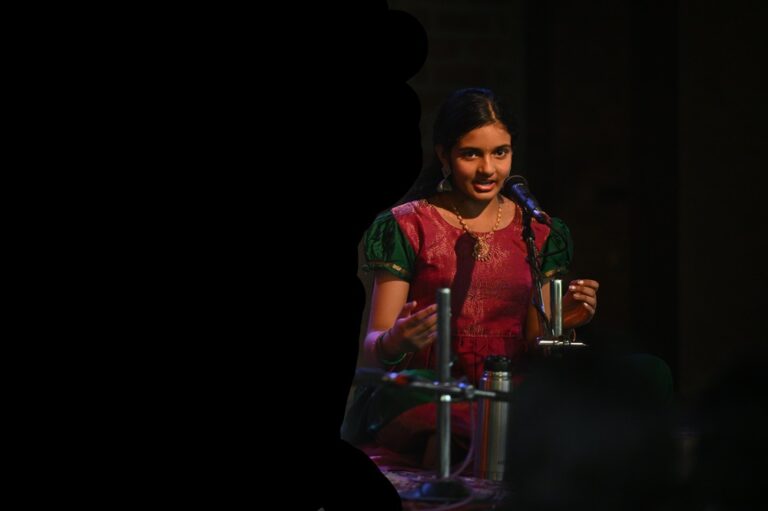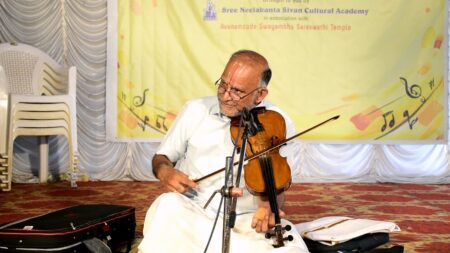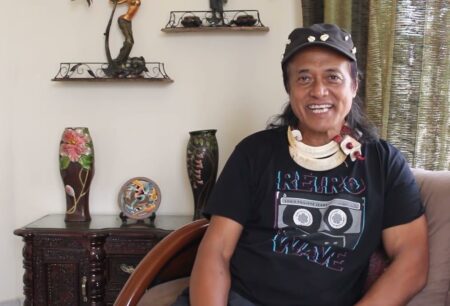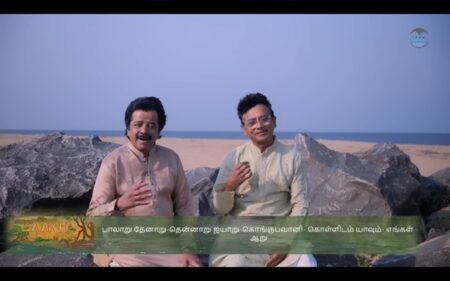Shruti Sreekanth’s performance reflected her steady commitment to the art form.
During my recent stay at Natanakairali, training in Mohiniyattam under my guru Nirmala Paniker, I had the privilege of witnessing a Carnatic music concert by Shruti Sreekanth, a 12-year-old vocalist from Brisbane, Australia, at the Kottichetham Studio. Despite being born and raised outside India, Shruti has admirably honed her skills in the age-old tradition of Carnatic music. For young artists like myself, living abroad yet deeply connected to our roots, her performance was both inspirational and aspirational.
Thoughtful selection of compositions
The concert, organised by Natanakairali, was introduced by its director, Kapila Venu. Shruti opened with a Varnam in Behag ragam and Adi talam, displaying a natural ease and confidence that resonated with the accompanying artists. The performance adhered to the traditional kutcheri format, beginning with an invocation to Lord Ganapati in ragam Nattai and Adi talam. This was followed by the Pancharatna Keerthanam “Entharo Mahanu Bhavulu” in Sri ragam, rendered with impressive clarity and speed. Despite English being her first language, Shruti’s articulation of the intricate lyrics was remarkable, as she effortlessly navigated the complex charanams.
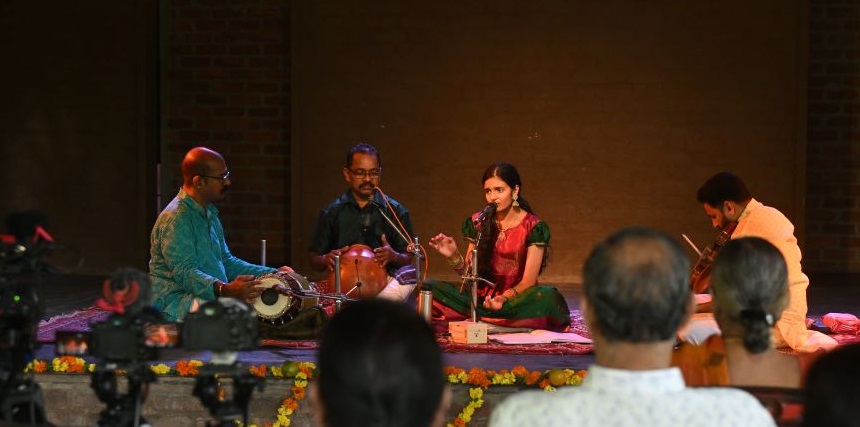
She then performed the Kalyani Keerthanam “Vasudevayani,” preceded by a brief raga alapanai and followed by Kalpana swarams. For the main piece, she chose “Siva Siva Ena Rada” in Panthuvarali. Her rendition of the raga, infused with spontaneous improvisation and engaging interaction with the violinist, reflected her profound grasp of manodharma, distinguishing her performance from mere rote memorisation. The piece also included Neraval and swarams, which were met with lively exchanges from the accompanying artists.
Precision in execution
Between these elaborate pieces, Shruti presented the popular Abheri Keerthanam “Nagumomu,” which was particularly well-supported by the mridangam. She followed this with the vibrant Kathanakuthuhalam composition “Raghuvamsasudha,” executing the chittai swaram with precision. Before concluding, she performed “Radha Sameta Krishna” in Misra Yaman and “Chandra Chooda” in Darbari Kanada. The concert concluded with a Mangalam in Madhyamavati, dedicated to Sangameshwara, the deity of the Irinjalakkuda Koodalmanikya Swami Temple.
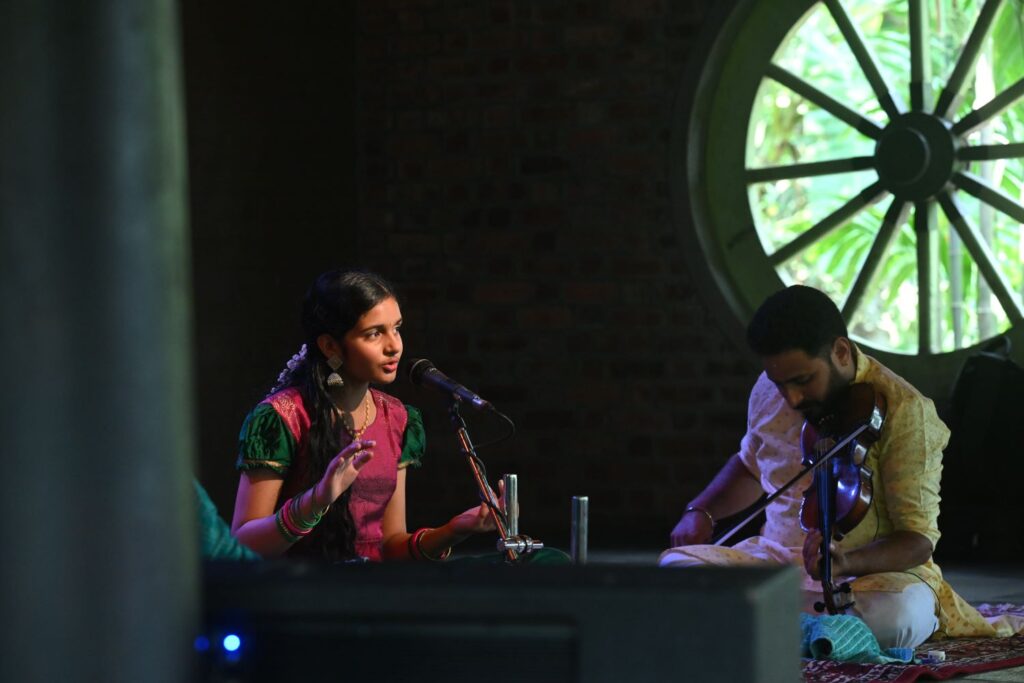
The thoughtful selection of compositions highlighted Shruti’s versatility and technical skill. Her rapport with the accompanying artists— Udupi Srijith on violin, Aluva R. Rajesh on mridangam, and G. Manohar on ghatam—was evident in their harmonious exchanges and mutual understanding on stage. Shruti’s passion for Carnatic music and her dedication to rigorous practice were palpable throughout the two-hour performance, as she sustained both energy and precision.

